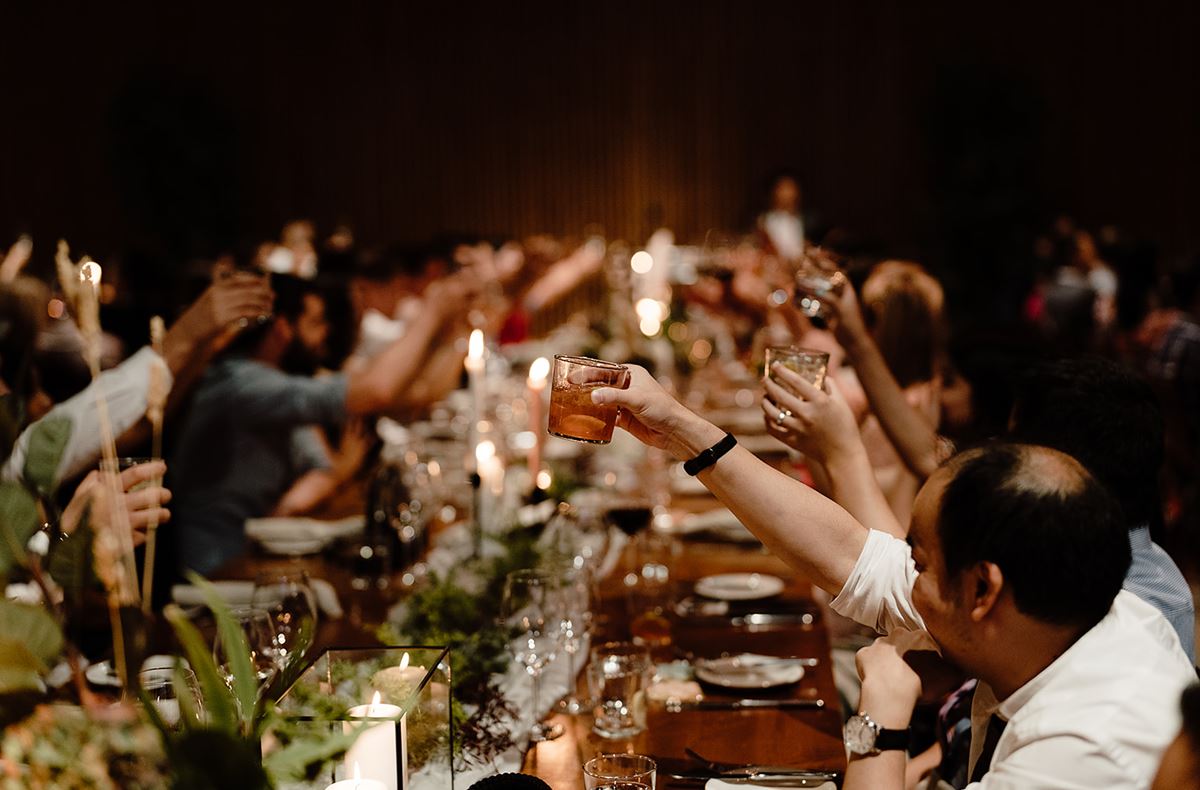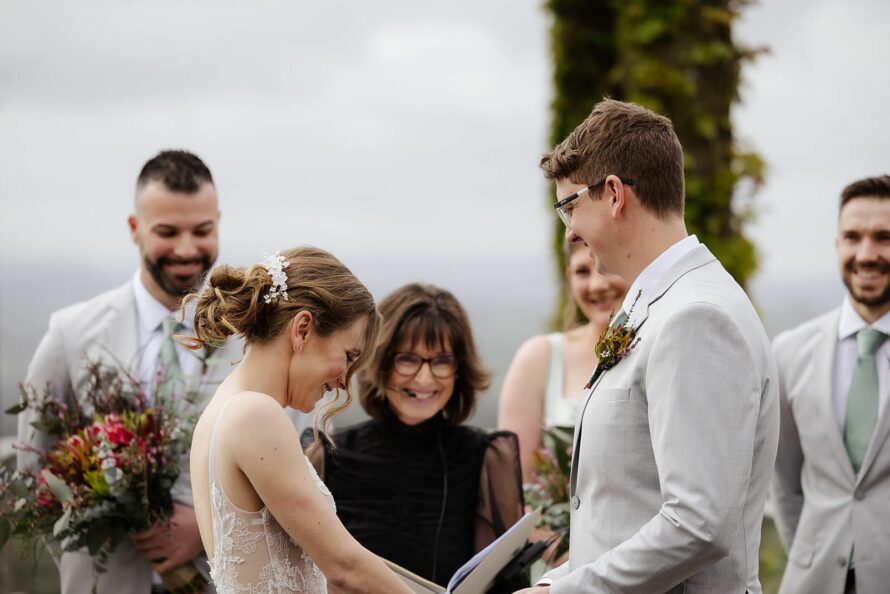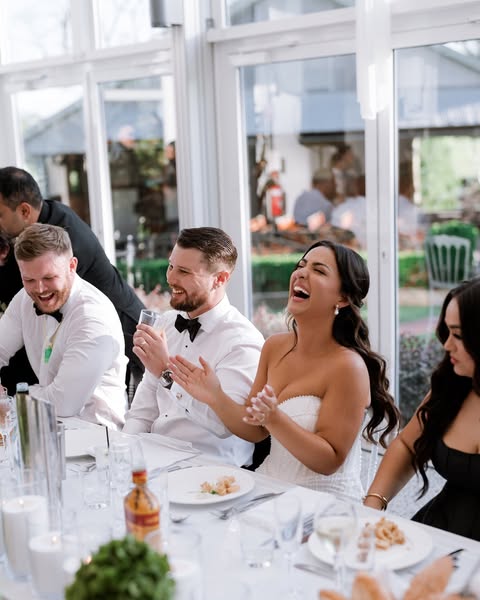What to include in the groom’s speech
The groom’s speech can be one of the more anticipated moments in a wedding reception. It’s a time for laughs, to speak from the heart, and a chance to show gratitude to the couple’s family and friends (as well as one another).
But between the nerves, timing, making sure you don’t forget anyone important and maybe a couple of sips of Dutch courage, writing and doing the groom’s speech can be a little overwhelming. Whether you’re a natural in the spotlight or a bit more of a wallflower, we’ve put together some essential tips to help you craft a memorable speech that hits the right notes.
Top tips for nailing the groom’s speech
1. Start with a thank you
Open your speech by thanking your guests for being there. If some have travelled from far away, it’s always nice to give them a specific mention.
Move on to acknowledgements, particularly your new in-laws. It’s important to take the time to show your appreciation for your new family and anyone else that deserves a particular mention, from close family members who couldn’t make it to grandparents who are there.
2. Shout out to the bridal party
This is where you can start to have some fun and maybe crack some jokes. Don’t make the stories too many inside jokes, it can make people feel left out. It might make you and your friends laugh, but it also might not hit with the rest of the guests.
Keep it short and sweet, and show them gratitude, have a laugh, then move on.
3. Speak about your partner
The reason that you’re all here – your love story. This is the emotional heart of the speech, and although tears aren’t required, it’s important to be genuine. You can share a joke or a funny story, but don’t let humour take place of where you can speak openly about what it is that makes them “your person.”
Share a moment or quality that made you fall for them – the real, personal stuff always lands best.

A groom’s speech is a time for reflection. Source: Half Acre.
4. Tell a story
Only if you’re comfortable telling one, it’s a personal touch to add in a story (about you and your partner!). Whether it’s how you met, a travel memory, or a wedding planning mishap, a good story adds personality and often humour — just keep it appropriate for all ages!
5. Find the balance between humour and emotion
It can be a very tricky balance, combining light-hearted laughs and heartfelt moments. What a groom’s speech is not is a time to practice your stand-up comedy routine. But the emotional side needs to feel natural and organic as well. The best thing to be is yourself.
A little emotion shows sincerity, and a well-placed joke keeps the room engaged.
6. Acknowledge absent loved ones
It can be a somber mood, but it’s important to acknowledge special people who weren’t able to make it. Whether it’s from distance, injury, sickness or loss, this simple mention is thoughtful and appreciated.

A wedding speech can rouse emotions. Source: Baker Boys Photography.
7. Thank the parents!
Yours and your partners, the parents are owed some thanks. Whether they have helped plan, helped pay, or simply shown you both support, give them their moment. This is a big day where families are merging, and acknowledging that is important.
8. Keep it timely
There’s nothing that stops the flow of the reception than overly long speeches. Cap it at eight minutes. Although speeches and acknowledgements are incredibly important, people are also there to have a dance and catch-up with friends and family.
Don’t lose the crowd, keep your groom’s speech short and sweet.
9. End on a high note and a toast
Wrap up with a heartfelt toast — to your partner, your families, your future together. It doesn’t have to be grand or poetic. Just speak from the heart and finish with a smile and a toast (and maybe a sip of something bubbly!).

The groom’s speech is one of the last formalities before dancing. Source: Brett Scapin.
Practice makes perfect!
Anyone who regularly does speeches or presentations knows that practice and prep is imperative.
- Aim for 5-7 minutes max
- Write it down and practice it out loud
- Have cue cards on your phone as a just in case – prepare for you getting nervous and forgetful
- Speak slowly – nerves speed you up!
And that’s it!
If you’re still after some more help, a great celebrant can also be an emcee. Search for an ideal celebrant that suits you and can help you with the speech as well. Find one today.



